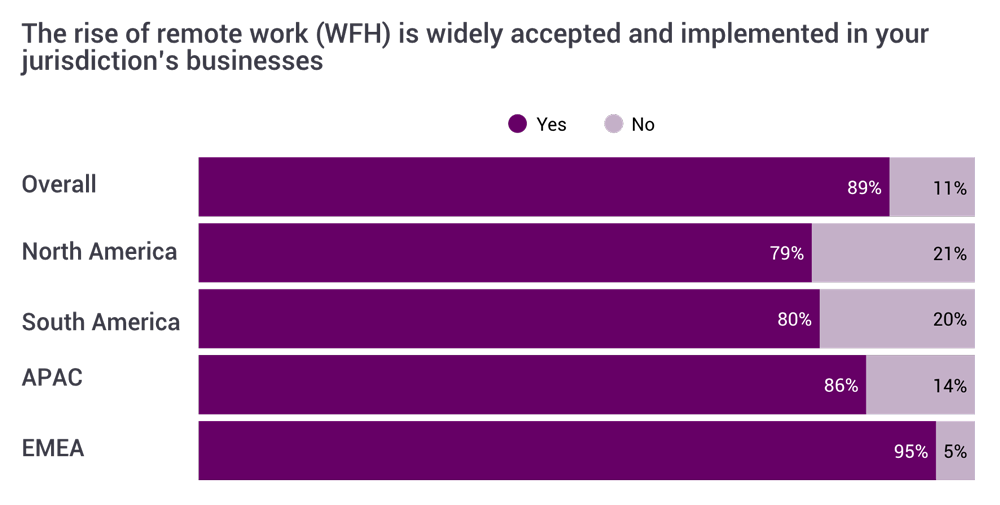

In countries such as Denmark (including the West Zealand region pictured), things don’t seem to be as complex.
Photo by Christoffer Sandage courtesy of Destination Sjælland
‘Sink or Swim’ Report Ranks Countries on Complexity
UK-based TMF Group yesterday released the latest edition of its Global Business Complexity Index (GBCI), which studies the layers of bureaucracy that can form “a dead-weight burden on business that stifles local innovation and deters foreign direct investment with no obvious societal benefit.”
Titled “Sink or Swim: Charting successful business growth in an increasingly uncertain world,” the GBCI tracks 292 indicators that affect three core areas of business administration: accounting and tax; global entity management; and HR and payroll. Replete with in-depth analysis of such factors as trade policy, remote work, government infrastructure, regional integration, trade hub status and talent attraction, the 55-page report features country-specific comments from unnamed TMF experts around the world. It also ranks 79 jurisdictions, countries that represent 94% of world GDP and 95% of net FDI inflow. In addition to the report itself, TMF Group will convene a webinar about its findings on Tuesday, June 3, and will host a presentation and reception around the report’s release in New York City the evening of June 5.
“Local complexity is costly, both to outside investors and to the many domestic businesses striving to grow,” writes TMF Group CEO Mark Weil in the report’s foreword. “Unsurprisingly, therefore, more complex countries are also lower prosperity in terms of GDP per capita. That might be a price worth paying were their administrative requirements conferring some social, environmental or other benefit. However, in our measure of complexity, we are mainly dealing with bureaucracy that is a dead weight cost on those countries’ economies. For example, Denmark, one of the easiest places to do business, does not look to be sacrificing much in such protections when compared to Brazil, one of the most complex countries to do business in.”

Remote and hybrid work arrangements appear to be here to stay. “If you really want to attract talent in major cities like Bogotá or Medellín or Barranquilla, you need to have a hybrid or remote model, simple as that,” says a TMF Group expert in Colombia. “If you tell people to come to the office, they will reject any offer, no matter what you’re paying.”
The report has consistently shown that countries in Southern Europe and Latin America are the most complex for doing business and that continues to be true in 2025. “At the other end of the scale, the least complex places to do business tend to be in Northern Europe and several of the offshore investment hubs,” the report explains. “These all compete for investment on the basis of the ease of doing business there and have adopted less onerous requirements, as well as more efficient ways for firms to manage them.”
Here are the 10 most complex countries and the 10 least complex, alongside the countries’ rankings over the preceding three years:
10 Most Complex Countries
| 2025 | 2024 | 2023 | 2022 | |
| 1 | Greece | 1 | 2 | 6 |
| 2 | France | 2 | 1 | 2 |
| 3 | Mexico | 4 | 4 | 4 |
| 4 | Turkey | 6 | 6 | 7 |
| 5 | Colombia | 3 | 5 | 5 |
| 6 | Brazil | 7 | 3 | 1 |
| 7 | Italy | 8 | 8 | 8 |
| 8 | Bolivia | 5 | 9 | 9 |
| 9 | Kazakhstan | 10 | 23 | 24 |
| 10 | China’s Mainland | 11 | 15 | 14 |
10 Least Complex Countries
| 2025 | 2024 | 2023 | 2022 | |
| 70 | Czech Republic | 69 | 65 | 63 |
| 71 | Curaçao | 78 | 76 | 76 |
| 72 | British Virgin Islands | 71 | 73 | 73 |
| 73 | Jamaica | 70 | 49 | 59 |
| 74 | The Netherlands | 74 | 75 | 56 |
| 75 | Jersey | 72 | 70 | 72 |
| 76 | Hong Kong, SAR | 76 | 74 | 74 |
| 77 | New Zealand | 75 | 71 | 70 |
| 78 | Denmark | 77 | 77 | 75 |
| 79 | The Cayman Islands | 79 | 78 | 77 |
The report notes that complexity is relatively straightforward to navigate, at least for larger multinationals able to absorb the cost of complying with local rules. “What is much harder to deal with is uncertainty.” Even the vaunted China plus one strategy is not immune to punishing U.S. tariffs that are already affecting countries with what the report calls “connector status” such as Mexico, the Philippines and Vietnam.

“The real challenge for businesses today isn’t complexity, it’s uncertainty … Tariffs are just the latest signal of the risks of supply chain concentration. Diversification is a necessity in this context, although it comes with a cost. The good news is that businesses can offset some of the complexities of diversification by reducing their own internal intricacies.”
— TMF Group CEO Mark Weil
“Even if tariffs abate, their launch and rapid shifts point to an underlying risk for companies trading from countries with a high U.S. trade surplus,” the GBCI states. But some countries may now emerge as new connectors thanks to their low complexity, low U.S. trade surpluses, sufficient size and multipolar stance with regard to trading with different blocs. “Those countries include the UK [No. 68 in complexity] and the Netherlands [No. 74] in Europe, Egypt [No 37] and Saudi Arabia [No. 38] in the Middle East and Australia [No. 47] and Hong Kong [No. 76] in Asia Pacific,” the report finds. Site Selection’s latest Global Best to Invest index this month found the UK atop the rankings.
How do other major economies fare in the GBCI rankings? At No. 64, the United States has crept upward in complexity from No. 71 a few years ago. Ireland (No. 61) and Costa Rica (No. 58) are among the countries that have steadily reduced their business complexity, reflected in the healthy FDI those countries are experiencing. (Ireland was Site Selection’s No. 1 Global Best to Invest location on a per capita basis). Germany has moved from the 20th most complex country to No. 34 since 2022, while India has moved in the opposite direction from No. 33 the past two years to No. 18 in the new study. At No. 48, Site Selection Global Best to Invest city-state Singapore has seen its complexity increase over the past few years, but finds itself in the healthiest sort of balance.
“It is attractive to set up holding companies and headquarters here,” says TMF’s Singapore expert in the report, noting that many investments in Asia pass through Singapore. “In terms of its location, it is strategic and there has been a focus on developing the port and using technology to enhance the infrastructure.”
Meanwhile, companies can benefit from scrutinize their own infrastructure, the report recommends. Even as they are driven to further diversify their supply chains, they can also examine and simplify how they manage those supply chains by, for example, reducing their number of legal entities and suppliers.
“Our benchmarking reveals stark differences in structural complexity among similar firms,” Weil stated in a TMF press release. “We see an opportunity here: by simplifying their structures and support models — for example, by having fewer legal entities and a few trusted global partners — businesses can gain flexibility. Done right, this can improve efficiency and agility as firms navigate an uncertain world.” — Adam Bruns
